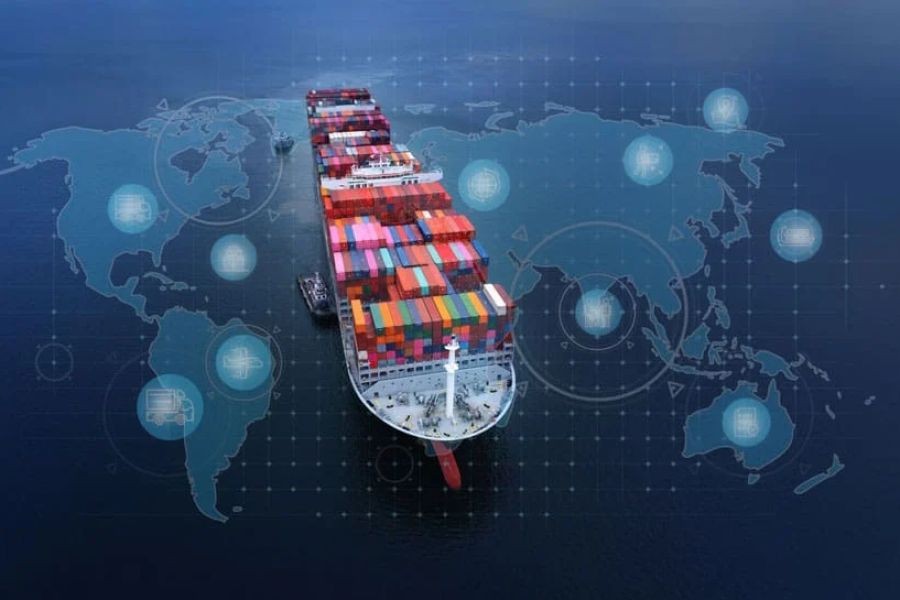In an interconnected world, the global trade system plays a pivotal role in shaping national economies. For New Zealand, a country known for its rich natural resources and innovative spirit, the global trade dynamics are not just an external factor but a fundamental component of its economic framework. Understanding how these global trade mechanisms influence New Zealand's future is crucial for investors, policymakers, and businesses alike.
Understanding the Impact of Global Trade on New Zealand
New Zealand's economy is deeply intertwined with global trade. As a nation with a relatively small domestic market, international trade constitutes a significant portion of its GDP. According to Statistics New Zealand, exports of goods and services accounted for 26% of the country's GDP in 2022. This reliance on exports highlights the importance of understanding global trade trends and their potential impact on the Kiwi economy.
Expert Insights: Navigating Global Trade Challenges
Dr. Emma Thompson, a leading economist at the Reserve Bank of New Zealand, emphasizes the importance of strategic adaptation in her analysis of global trade impacts. She notes, "New Zealand must prioritize diversifying its export markets to mitigate the risks associated with global trade tensions and economic fluctuations."
For instance, New Zealand's heavy reliance on China as a trading partner poses both opportunities and risks. While China remains a crucial market for New Zealand's agricultural exports, geopolitical tensions and trade policy changes could disrupt this relationship. Diversifying export destinations and investing in new trade agreements are essential strategies for mitigating these risks.
The Pros and Cons of New Zealand's Trade Reliance
Pros
- Economic Growth: Trade has been a driving force behind New Zealand's economic growth, contributing to job creation and increased national income.
- Market Access: Trade agreements, such as the Comprehensive and Progressive Agreement for Trans-Pacific Partnership (CPTPP), provide New Zealand with access to lucrative markets, boosting export potential.
- Innovation and Productivity: Exposure to international markets encourages innovation and productivity improvements among New Zealand businesses.
Cons
- Vulnerability to External Shocks: New Zealand's dependence on global trade makes it susceptible to external economic shocks and trade disruptions.
- Trade Imbalances: A focus on exports can lead to trade imbalances, impacting domestic industries and employment.
- Environmental Concerns: The environmental impact of increased trade, particularly in agriculture, raises sustainability challenges that need to be addressed.
Case Study: Zespri's Global Expansion
Problem: Zespri, a leading kiwifruit exporter, faced challenges in expanding its market share beyond traditional markets like China and Japan. The company recognized the need to diversify its export destinations to ensure sustained growth.
Action: Zespri implemented a strategic expansion plan focused on emerging markets such as India and Southeast Asia. The company invested in marketing campaigns and established local partnerships to increase brand awareness and market penetration.
Result: Within three years, Zespri achieved a 20% increase in sales in these new markets, significantly reducing its reliance on China and Japan. The strategic diversification not only boosted revenue but also enhanced the company's resilience to market fluctuations.
Takeaway: Zespri's success underscores the importance of market diversification for New Zealand exporters. By exploring new markets, businesses can mitigate risks and capitalize on growth opportunities.
Debunking Common Myths About Global Trade
Myth: "Trade agreements only benefit large corporations." Reality: While large corporations often gain from trade agreements, small and medium-sized enterprises (SMEs) in New Zealand also benefit from increased export opportunities and reduced trade barriers, as evidenced by the CPTPP.
Myth: "Global trade leads to job losses." Reality: Trade can lead to shifts in employment, but it also creates new job opportunities in export-oriented industries. According to a study by the Ministry of Business, Innovation and Employment (MBIE), trade-related sectors accounted for over 500,000 jobs in New Zealand in 2023.
Future Trends in Global Trade and Their Implications for New Zealand
Looking ahead, several trends are likely to shape the global trade landscape and impact New Zealand's economy:
- Digital Trade: The rise of e-commerce and digital trade platforms offers new opportunities for New Zealand businesses to access international markets efficiently.
- Sustainability Focus: Increasing consumer demand for sustainable and ethically sourced products will require New Zealand exporters to adopt environmentally friendly practices.
- Trade Policy Shifts: Geopolitical shifts and changes in trade policies, such as the U.S.-China trade dynamics, will necessitate proactive adaptation by New Zealand's trade sector.
By staying informed and agile, New Zealand can leverage these trends to enhance its global trade position and drive economic growth.
Conclusion
Global trade remains a cornerstone of New Zealand's economic strategy, offering both opportunities and challenges. By understanding the intricacies of the global trade system and implementing strategic measures, New Zealand can navigate potential disruptions and capitalize on emerging opportunities. As the world continues to evolve, staying informed and adaptable will be key to ensuring New Zealand's economic resilience and prosperity. What strategies do you think will be most effective in shaping New Zealand's trade future? Share your insights below!
People Also Ask
- How does global trade impact New Zealand's economy? Global trade significantly contributes to New Zealand's GDP, with exports of goods and services accounting for 26% of the GDP in 2022 (Source: Stats NZ).
- What are the biggest misconceptions about global trade? A common myth is that trade agreements only benefit large corporations. However, they also provide SMEs with increased export opportunities (Source: MBIE).
- What are the best strategies for New Zealand businesses to succeed in global trade? Experts recommend diversifying export markets and investing in sustainable practices to enhance global competitiveness.
Related Search Queries
- New Zealand trade agreements 2024
- Impact of global trade on NZ economy
- New Zealand export diversification strategies
- Future of global trade in New Zealand
- New Zealand trade policy changes 2025

































XHQAddie12
9 months ago